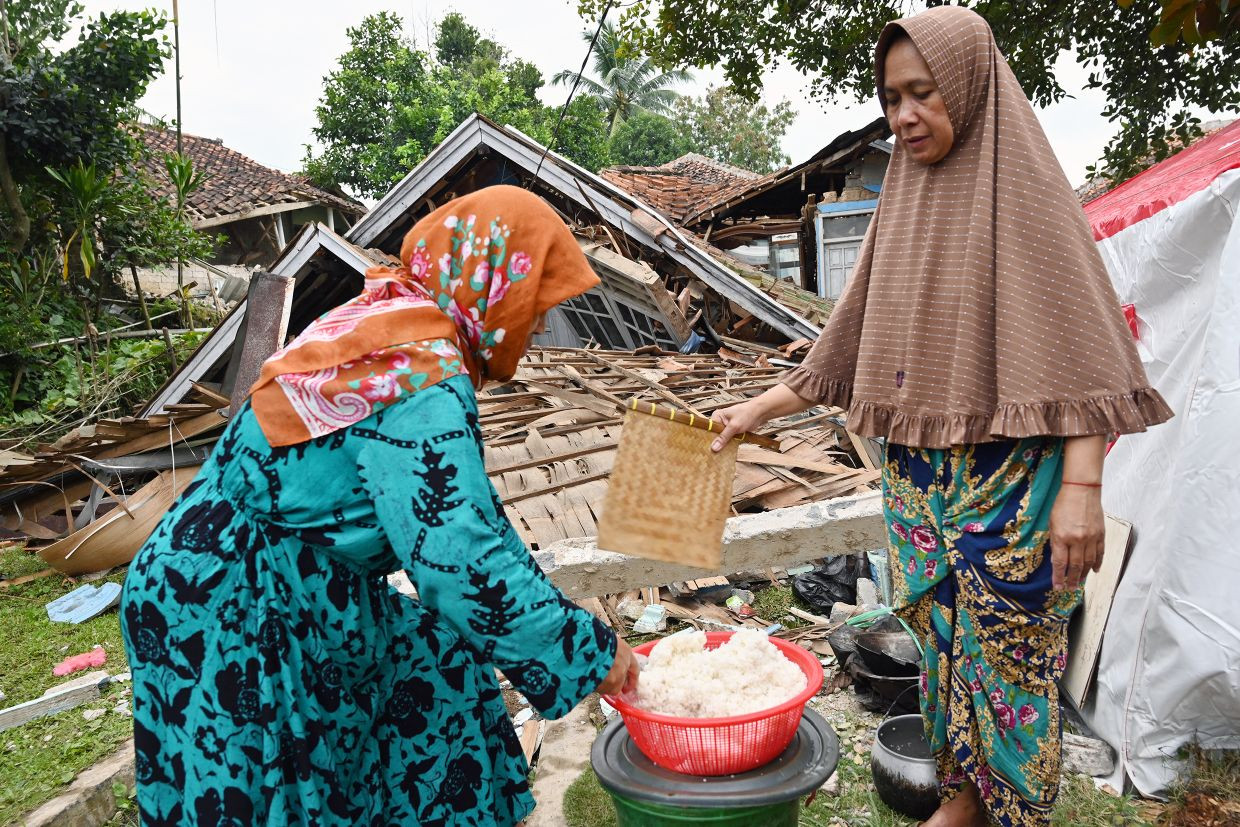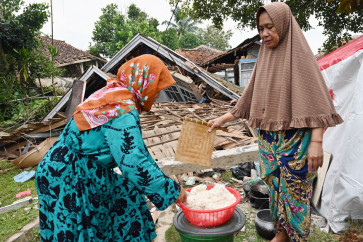Popular Reads
Top Results
Can't find what you're looking for?
View all search resultsPopular Reads
Top Results
Can't find what you're looking for?
View all search resultsWomen in the shadow of men, patriarchy in the face of disaster
When women were attempting to reduce the potential risk of gender-based violence in refugee camps, this positive suggestion was dismissed simply because it came from women's mouths.
Change text size
Gift Premium Articles
to Anyone
W
hen a disaster strikes, it is often women, particularly mothers, who are first preoccupied with minimizing its impact at home by taking valuables, securing groceries so people do not go hungry, hugging and protecting children from harm, assisting in the preparation of food in public kitchens and much more.
Unfortunately, the role of women in disasters is taken for granted, without considering that there are other roles to which women can contribute. When I attended several meetings with the Disaster Risk Reduction Forum (FPRB), I noticed that women's voices were frequently ignored. Many women chose to remain silent because they were told from the start to simply follow the decisions made in the meeting.
Ibu Yanti (not her real name), a participant in the Citizen Voice and Action (CVA) activity initiated by Wahana Visi Indonesia (WVI), is one of the female figures who is discriminated against. She is very involved in a variety of activities and was a star when she spoke to groups of all-female participants. However, when the majority of the participants in the discussion were men, including a disaster-training program held by WVI in Cikeas, West Java, the men shut down Yanti's idea.
"The ladies will take care of the garbage and public kitchens, okay?" said one of the forum leaders right away, effectively closing the door on brilliant ideas from female participants. Another village chief responded immediately, "Women will follow the forum's decisions, okay?" as if all decisions were beneficial to women.
Despite disaster, patriarchal culture continues to bury women under the shadow of male dominance. Women's places are only public kitchens and waste bins. During a discussion about temporary shelters, a woman suggested gender-segregated shelters for security reasons. Several men immediately refused, claiming that they needed to sleep with their families in order to protect their wives and children.
Meanwhile, in emergencies, shelters are frequently barracks or large buildings where many families sleep under one roof. This means there are some women who may be uncomfortable and vulnerable to sexual violence. The woman's suggestion was rejected.
It is unfortunate that when women were attempting to reduce the potential risk of gender-based violence in refugee camps, this positive suggestion was dismissed simply because it came from women's mouths.



















